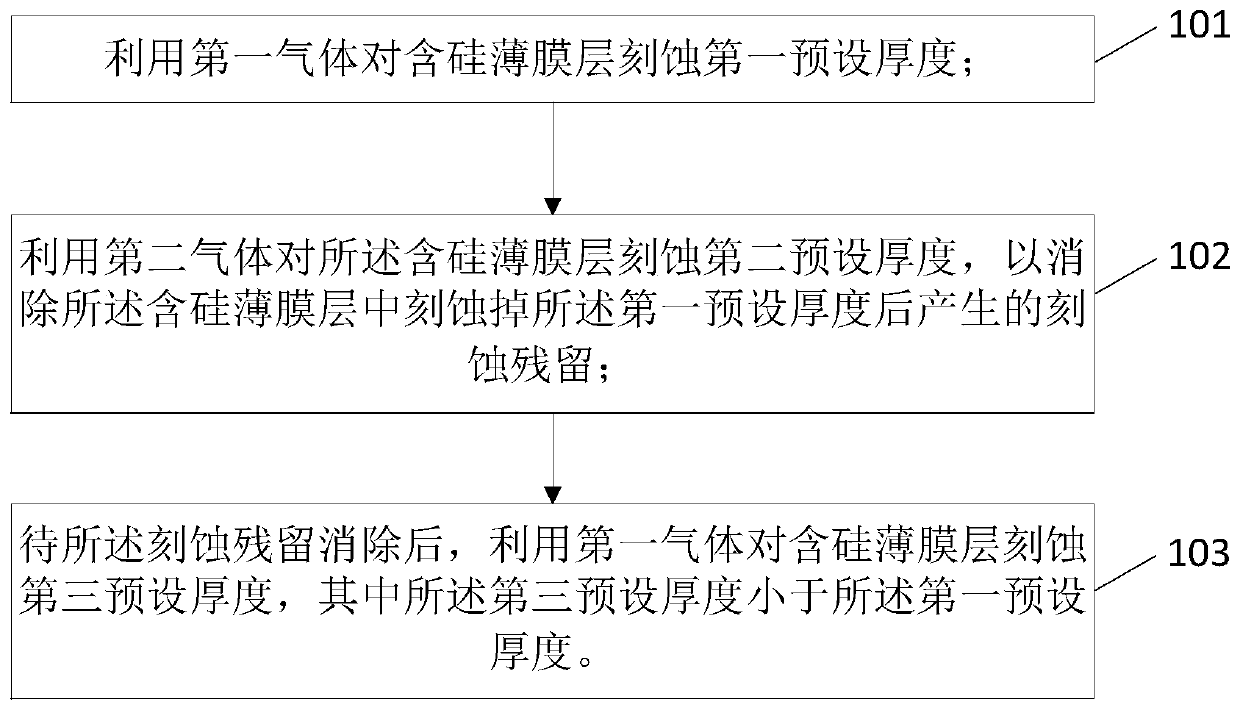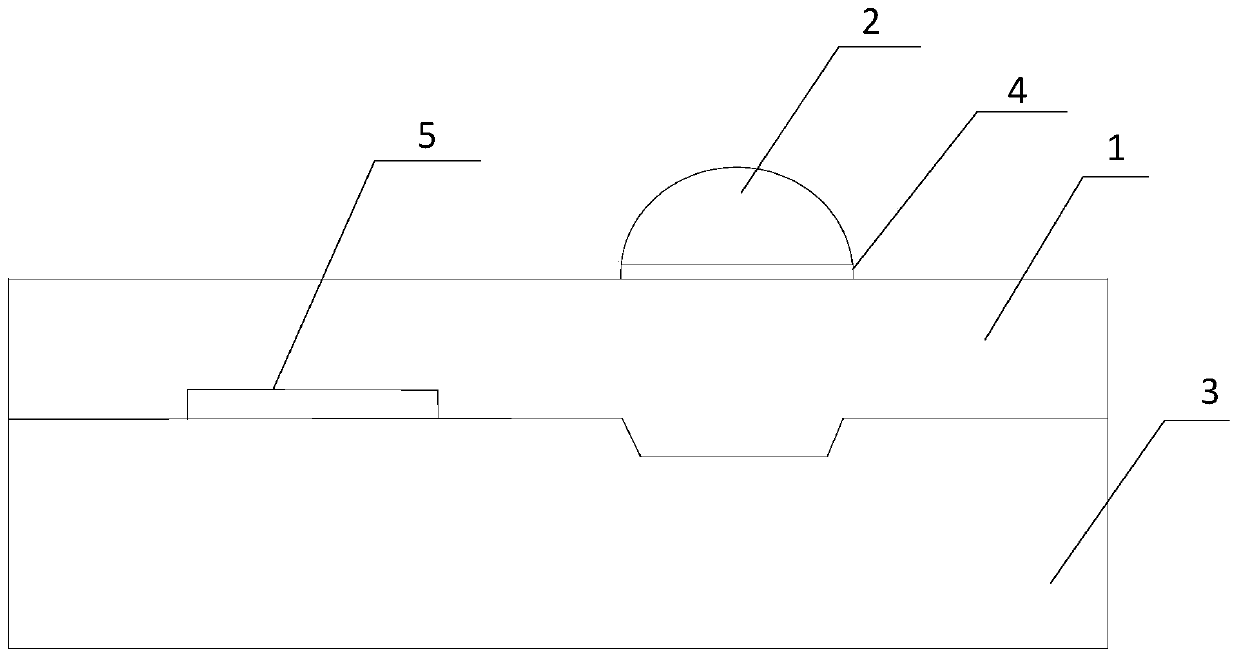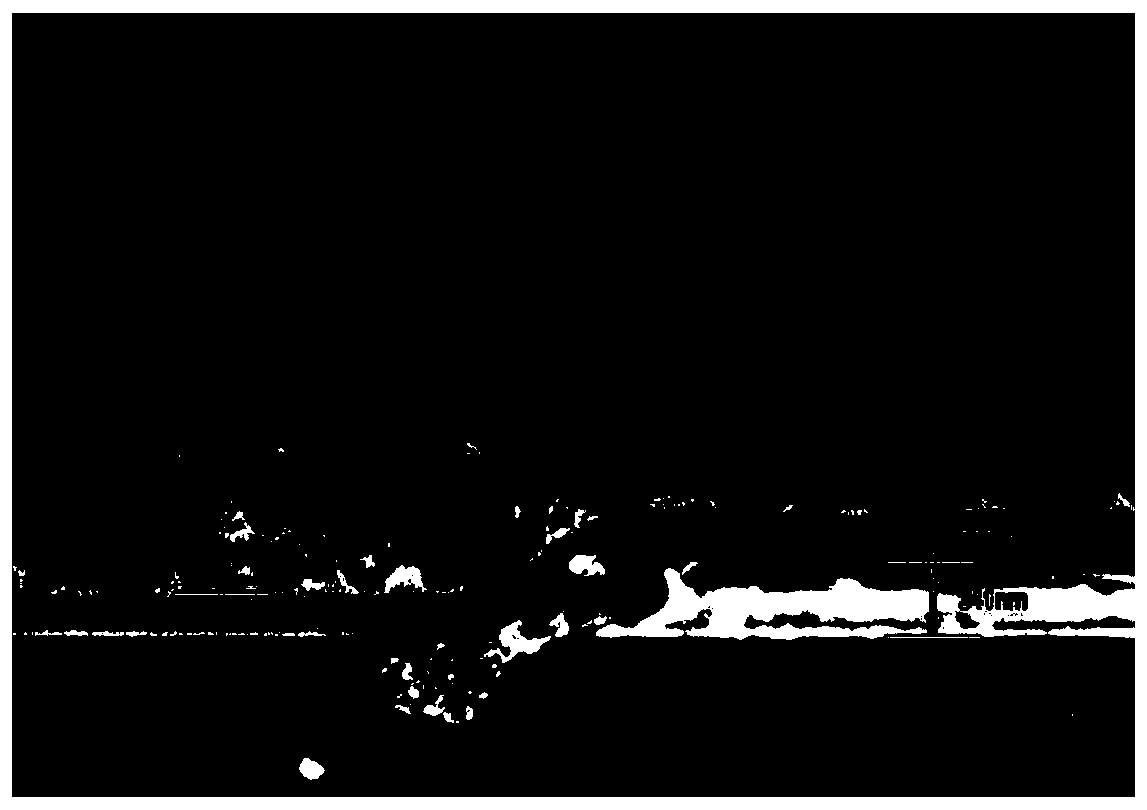dry etching method
A technology of dry etching and etching rate, which is applied in the direction of semiconductor devices, electrical components, transistors, etc., and can solve other problems such as film damage and the inability to guarantee the quality of dry etching
- Summary
- Abstract
- Description
- Claims
- Application Information
AI Technical Summary
Problems solved by technology
Method used
Image
Examples
Embodiment 1
[0047] An embodiment of the present invention provides a dry etching method, including:
[0048] 70% of the thickness of the silicon-containing film layer was etched away by chlorine gas and sulfur hexafluoride gas at a pressure of 45 mTorr, wherein the mass ratio of sulfur hexafluoride gas to chlorine gas was 1:30.
[0049] 20% of the thickness of the silicon-containing thin film layer was etched away by oxygen gas and carbon tetrafluoride gas at a pressure of 45 mTorr, wherein the mass ratio of oxygen gas and carbon tetrafluoride gas was 1:5, and the over-etching amount was 10%.
[0050] 10% of the thickness of the silicon-containing film layer was etched away by chlorine gas and sulfur hexafluoride gas at a pressure of 45 mTorr, wherein the mass ratio of sulfur hexafluoride gas to chlorine gas was 1:30, and the over-etching amount was 20%.
[0051] Wherein, the above-mentioned dry etching temperature is 20 degrees Celsius.
Embodiment 2
[0053] An embodiment of the present invention provides a dry etching method, including:
[0054] 55% of the thickness of the silicon-containing film layer was etched away by chlorine gas and sulfur hexafluoride gas at a pressure of 30 mTorr, wherein the mass ratio of sulfur hexafluoride gas to chlorine gas was 1:30.
[0055] 30% of the thickness of the silicon-containing thin film layer was etched away by using oxygen gas and carbon tetrafluoride gas at a pressure of 30 mTorr, wherein the mass ratio of oxygen gas and carbon tetrafluoride gas was 1:1.5, and the over-etching amount was 20%.
[0056] 15% of the thickness of the silicon-containing thin film layer was etched away by chlorine gas and sulfur hexafluoride gas at a pressure of 30 mTorr, wherein the mass ratio of sulfur hexafluoride gas to chlorine gas was 1:20, and the over-etching amount was 15%.
[0057] Wherein, the above-mentioned dry etching temperature is 30 degrees Celsius.
Embodiment 3
[0059] An embodiment of the present invention provides a dry etching method, including:
[0060] 75% of the thickness of the silicon-containing film layer was etched away by chlorine gas and sulfur hexafluoride gas at a pressure of 30 mTorr, wherein the mass ratio of sulfur hexafluoride gas to chlorine gas was 1:20.
[0061] 15% of the thickness of the silicon-containing thin film layer was etched away by using oxygen gas and carbon tetrafluoride gas at a pressure of 30 mTorr, wherein the mass ratio of oxygen gas and carbon tetrafluoride gas was 1:10, and the over-etching amount was 10%.
[0062] 10% of the thickness of the silicon-containing thin film layer was etched away by chlorine gas and sulfur hexafluoride gas at a pressure of 30 mTorr, wherein the mass ratio of sulfur hexafluoride gas to chlorine gas was 1:20, and the over-etching amount was 15%.
[0063] Wherein, the above-mentioned dry etching temperature is 25 degrees Celsius.
PUM
 Login to View More
Login to View More Abstract
Description
Claims
Application Information
 Login to View More
Login to View More - R&D
- Intellectual Property
- Life Sciences
- Materials
- Tech Scout
- Unparalleled Data Quality
- Higher Quality Content
- 60% Fewer Hallucinations
Browse by: Latest US Patents, China's latest patents, Technical Efficacy Thesaurus, Application Domain, Technology Topic, Popular Technical Reports.
© 2025 PatSnap. All rights reserved.Legal|Privacy policy|Modern Slavery Act Transparency Statement|Sitemap|About US| Contact US: help@patsnap.com



